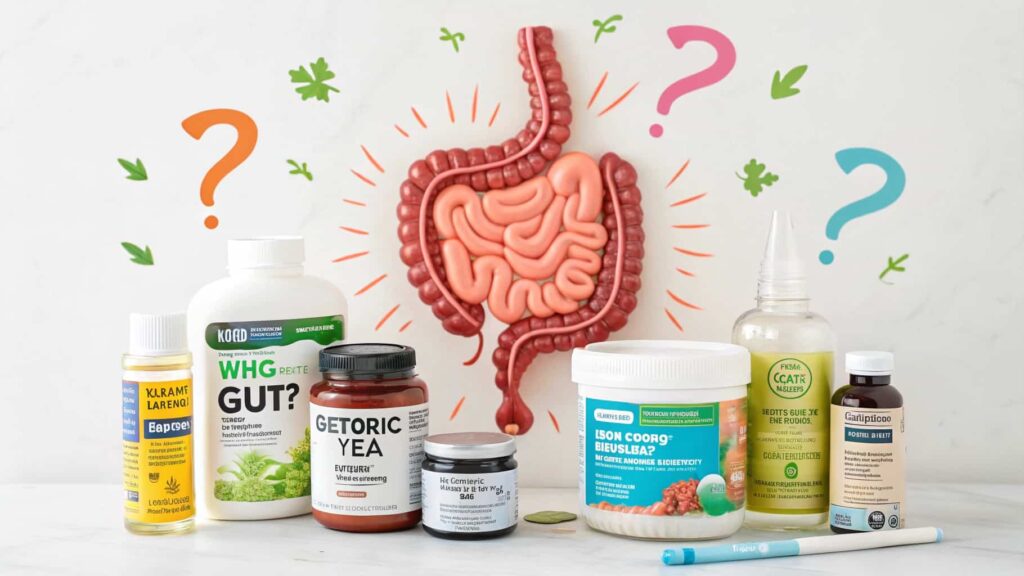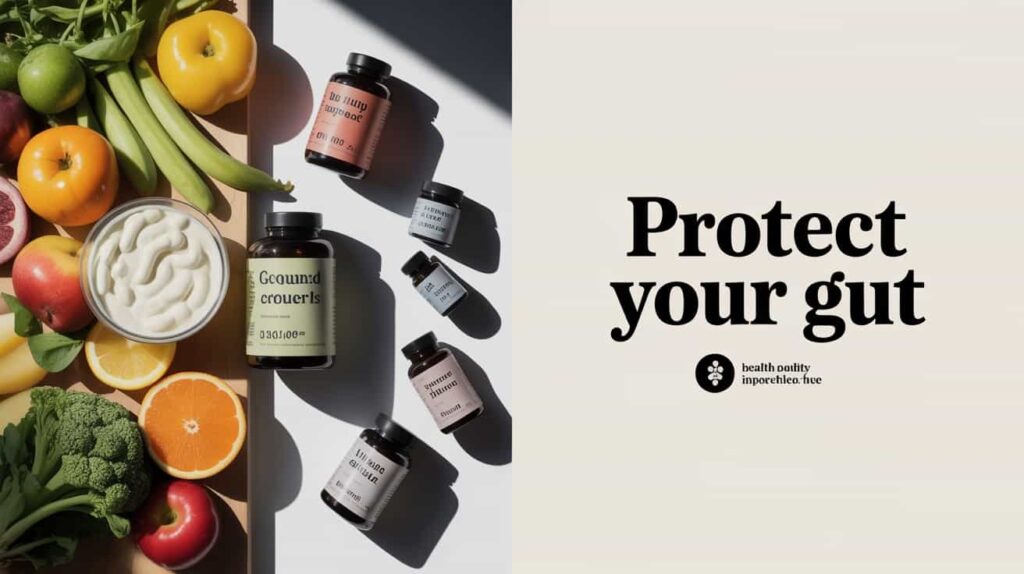In recent years, gut health has become one of the most talked-about topics in the wellness industry. From influencers and wellness brands to self-proclaimed health experts, everyone seems to have an opinion on how to improve your gut health. Supplements, detox teas, probiotics, and cleanses are now part of a booming market. However, not everyone is buying into the hype. The rise of Bodi Gut Health Snark has become a major online phenomenon, where humor, sarcasm, and critical thinking challenge exaggerated claims and pseudoscientific products.
This article will explore the world of gut health snark, dissecting its meaning, why it’s gaining popularity, and how it helps consumers navigate the increasingly murky waters of wellness marketing. We’ll also examine the key criticisms against products like Bodi Gut Health, which have been frequently targeted by gut health skeptics. By diving deep into the science behind gut health, we aim to equip consumers with the tools to distinguish fact from fiction in a world that is often flooded with misleading information.
What Is Bodi Gut Health Snark?
Bodi Gut Health Snark is the growing wave of sarcastic, humorous, and often brutally honest commentary aimed at gut health products—especially those from Bodi (formerly Beachbody). Simply put, it’s how people on the internet call out overhyped claims and shady marketing in a funny, relatable way. Instead of blindly trusting “detox” teas or gut “resets,” these critics use jokes, memes, and science-backed facts to expose the truth.

What makes it so refreshing is that it doesn’t just bash products—it encourages smarter choices and critical thinking. As people grow tired of wellness fads and influencer ads, this snarky movement gives them a way to laugh, learn, and question what they’re really buying. In other words, it’s humor with a purpose—and a lot of eye-rolls at overpriced supplements.
Key Characteristics of Gut Health Snark:
- Sarcastic Commentary: Critics often poke fun at absurd product claims. For example, a product that promises to “reset” your gut in three days may become the subject of humorous ridicule.
- Humorous Exposures: Gut health snark often uses humor to highlight the ridiculousness of certain wellness trends, making it easier for consumers to laugh and relate.
- Evidence-Based Debunking: Many snarky posts include links to actual scientific studies, disproving common myths about gut health products.
- Consumer Empowerment: The goal of gut health snark is to encourage critical thinking and make consumers more discerning about the health products they choose.
Why Is Gut Health Snark So Popular?
The rise of gut health snark can be attributed to several cultural and social factors. Let’s explore why this phenomenon has gained so much popularity in recent years.
Misinformation and Overhyped Products:
The wellness industry is notorious for making big promises with little to no scientific backing. With so many products claiming to cure everything from bloating to poor digestion, it’s easy to see why consumers are frustrated. The marketing tactics used by some wellness companies are often deceptive, leading people to believe that products can deliver miraculous results. Gut health snark has emerged as a response to this misinformation overload, offering a space for critical commentary.
Influencer Fatigue:
Wellness influencers have become an integral part of the marketing machine in the gut health industry. However, many of these influencers promote products with little to no scientific evidence. Their endorsements are often driven by affiliate marketing and brand collaborations rather than genuine expertise. As a result, consumers are becoming increasingly skeptical of influencers who prioritize profit over transparency. Gut health snark gives voice to this skepticism by mocking the influencers who rely on unverified personal experiences rather than evidence-based practices.
Humor as a Coping Mechanism:
Navigating the overwhelming world of wellness trends can be exhausting, especially when it feels like every new product is touted as the next big thing. Humor has become a coping mechanism for many consumers who feel inundated by conflicting health advice. Gut health snark provides a way to process frustration and laugh at the absurdity of some wellness claims, all while sharing this humor with like-minded individuals.
Distrust in Institutions:
In an age of growing distrust in corporations, healthcare systems, and regulatory bodies, consumers are turning to grassroots communities like Reddit to find honest, unfiltered discussions about health and wellness products. Gut health snark represents a rebellion against traditional advertising and corporate manipulation. It allows consumers to engage in open discussions, demand accountability, and push back against the growing number of unregulated products flooding the market.
The Rise of Consumer Empowerment:
With the growth of online communities and social media platforms, consumers now have a louder voice than ever before. Empowered by the ability to share opinions, experiences, and critiques, people are taking control of their wellness choices. Gut health snark fosters this empowerment by encouraging individuals to question the status quo and make informed decisions about their health products.
The Role of Reddit in Gut Health Snark – Dont Miss Out!
Reddit has become the central hub for gut health snark. Several subreddits are dedicated to exposing the pseudoscience and deceptive marketing tactics that many wellness brands use. Let’s take a look at some of the most popular subreddits where gut health snark thrives.
- r/antiMLM: This subreddit exposes the predatory practices of multi-level marketing (MLM) companies, including those that sell gut health products like detox teas and probiotics. Members often criticize the inflated prices and exaggerated claims made by these brands.
- r/shittyhealthtips: Dedicated to calling out bad health advice, this community regularly features posts mocking the pseudoscientific claims made by gut health product marketers.
- r/Instagramreality: This subreddit critiques how influencers curate unrealistic lifestyles, often targeting those who promote gut health products without evidence of their effectiveness.
- r/science: While not explicitly focused on snark, r/science hosts evidence-based discussions about health and wellness trends. Many users debunk popular gut health myths with data-driven insights.
Bodi Gut Health – A Case Study in Wellness Marketing!
Bodi (formerly Beachbody) has become a frequent target of gut health snark due to its aggressive marketing tactics and reliance on multi-level marketing (MLM). Let’s explore some of the common criticisms of Bodi Gut Health products.
Overblown Claims:
Bodi’s marketing often makes bold promises, such as “resetting your gut” or “detoxing your body,” which sound appealing but are often unsupported by scientific evidence. Consumers and critics alike question the validity of these claims, with many calling them out as nothing more than clever marketing ploys.
High Prices:
Bodi’s products are often priced much higher than similar alternatives, leading to questions about their true value. For example, a Bodi detox tea can cost upwards of $70, a price that many feel is far too expensive for a product with little proven efficacy.
Multi-Level Marketing (MLM) Model:
Bodi uses a multi-level marketing structure to sell its products. This business model relies on “coaches” to promote and sell the products, often without any real training in health or nutrition. Critics argue that this MLM model exploits individuals and pushes unqualified sellers to promote products that may not be effective.
Lack of Transparency:
One of the most frequent criticisms of Bodi is its lack of transparency regarding the ingredients in its products and the studies backing its claims. Consumers often feel that they are not given enough information to make informed decisions about the products they purchase.
Debunking Gut Health Myths – What the Science Says!
While gut health snark often targets pseudoscience, it’s important to recognize that gut health is a legitimate field of scientific research. Let’s take a closer look at some of the most common gut health myths and separate fact from fiction.
Probiotics: Friend or Foe?
Probiotics are live bacteria that are believed to benefit gut health. However, not all probiotics are created equal. Many supplements don’t contain enough viable bacteria to make a noticeable difference. Instead, fermented foods like yogurt, kimchi, and kefir are natural sources of probiotics that can be more beneficial.
The Reality:
Only specific strains of probiotics have been studied for their effects, and many supplements don’t provide the necessary dosage for effectiveness. When looking for probiotics, it’s important to choose products that contain clinically studied strains.
Prebiotics: Essential for Gut Health?
Prebiotics are fibers that feed the beneficial bacteria in your gut. While many people turn to prebiotic supplements, the truth is that you can get prebiotics from whole foods like bananas, garlic, onions, and asparagus.
The Reality:
Food-based prebiotics are just as effective—if not more so—than supplements. In fact, consuming whole foods that are rich in prebiotics will provide additional benefits for overall gut health.
Fiber: The Foundation of Gut Health
Fiber is essential for a healthy gut microbiome. A diet rich in fiber helps to maintain a balanced gut and prevent digestive issues.
The Reality:
Whole grains, fruits, vegetables, and legumes are the best sources of fiber. A diet high in these foods can promote healthy digestion, prevent constipation, and support overall gut health.
Detoxing: Is It Necessary?
One of the most common myths in the wellness industry is that the body needs help detoxing. Products like detox teas and cleanses are marketed as essential for gut health, but the truth is, your body already detoxifies itself naturally through the liver and kidneys.
The Reality:
There is no need for expensive detox products. Your body is already equipped with the necessary systems to remove toxins on its own. Rather than spending money on detox teas, focus on eating a balanced diet and staying hydrated to support your body’s natural detoxification processes.
Why Do Consumers Fall for Gut Health Scams?
Many consumers fall for gut health scams because they often seek quick fixes for complex health issues, making them vulnerable to products that promise instant results despite lacking scientific evidence. Additionally, fear-based marketing using alarming terms like “toxins” and “reset” creates a sense of urgency that pushes people to act hastily.
The placebo effect also plays a role, where belief in a product’s effectiveness can lead to perceived improvements, even if the product itself is ineffective. Moreover, social pressure from influencers on platforms like social media promotes these products as essential for a healthy lifestyle, making consumers feel compelled to buy them in order to fit in or achieve similar wellness goals.
Practical Tips for Consumers – How to Avoid Gut Health Scams!
With so many products flooding the market, it’s important for consumers to be able to separate the legitimate from the bogus. Here are some practical tips for navigating the world of gut health products:

Look for Transparency:
Choose brands that openly disclose all ingredients and provide scientific studies supporting their claims. Products tested by independent third parties show a commitment to quality and safety. Transparency helps you verify what you’re putting in your body and avoid hidden or ineffective ingredients.
Beware of Overblown Claims:
Be skeptical of products that promise miraculous or instant results. Gut health is a complex and individualized process that can’t be “fixed” overnight with a single supplement. Bold marketing claims often mask a lack of solid evidence or genuine efficacy.
Consult a Healthcare Professional:
If you have ongoing or serious gut health issues, always seek advice from a qualified healthcare provider. Professionals can offer personalized guidance and recommend evidence-based treatments. Relying solely on unverified products may delay proper diagnosis and care.
Prioritize Whole Foods and Healthy Habits:
Gut health is best supported through a balanced diet rich in fiber, fermented foods, and prebiotics, rather than relying on supplements alone. Regular exercise, adequate hydration, and stress management also play critical roles. These lifestyle factors create a strong foundation for lasting gut wellness.
Be Wary of Social Media Hype and Influencer Endorsements:
Many influencers promote gut health products without scientific backing, often driven by sponsorships rather than expertise. Avoid making purchase decisions based solely on social media trends or celebrity endorsements. Instead, do your own research and seek reliable information sources.
FAQs:
Are probiotics really beneficial for gut health?
Probiotics can be beneficial for gut health, but not all strains have proven effects. Research shows that specific strains are more effective than others. Fermented foods like yogurt and kimchi are often better natural sources of probiotics than supplements.
What are the risks of buying unregulated gut health products?
Unregulated gut health products may contain harmful ingredients or insufficient doses of active ingredients. Many of these products lack scientific backing, leading to ineffective results. There’s also the risk of financial loss when consumers purchase products that don’t deliver on their promises.
How can I identify credible gut health products?
Look for products that provide transparency about their ingredients and include third-party testing. Always check for scientific studies backing their claims. Avoid products with overblown marketing promises, such as “instant gut resets.”
Are MLM companies like Bodi a legitimate business model?
MLM companies are often criticized for relying on individuals with little expertise to sell products. This model can exploit participants and create financial imbalances. It’s important to be wary of MLM schemes, especially those that rely on personal anecdotes rather than scientific evidence.
Can gut health be improved without supplements?
Yes, gut health can be improved through a balanced diet that includes fiber, prebiotics, and fermented foods. Many natural food sources offer the same benefits as supplements, without the need for additional pills or powders. Focus on whole foods like vegetables, whole grains, and yogurt.
Why are gut health products so expensive?
Many gut health products are overpriced due to high marketing costs, including influencer promotions and brand collaborations. The price often reflects the brand’s profit margin rather than the actual cost of production. Consumers can often find more affordable alternatives with similar benefits.
What are some natural alternatives to expensive gut health supplements?
Fermented foods like kefir, kimchi, sauerkraut, and yogurt are excellent natural sources of probiotics. Prebiotic-rich foods like garlic, onions, and bananas also support gut health. A well-balanced diet, combined with regular hydration, can do wonders for your digestive system.
Conclusion:
In a market flooded with gut health products, staying informed and cautious is essential. By prioritizing transparency, consulting healthcare professionals, and focusing on healthy lifestyle habits, consumers can avoid falling prey to scams. Skepticism toward overblown claims and influencer hype helps protect both health and finances. Remember, true gut health improvements take time and consistent effort.
Empower yourself with knowledge and critical thinking to make choices that truly benefit your well-being. With the right approach, you can navigate the wellness world confidently and safely.
Also Read:


Leave a Reply